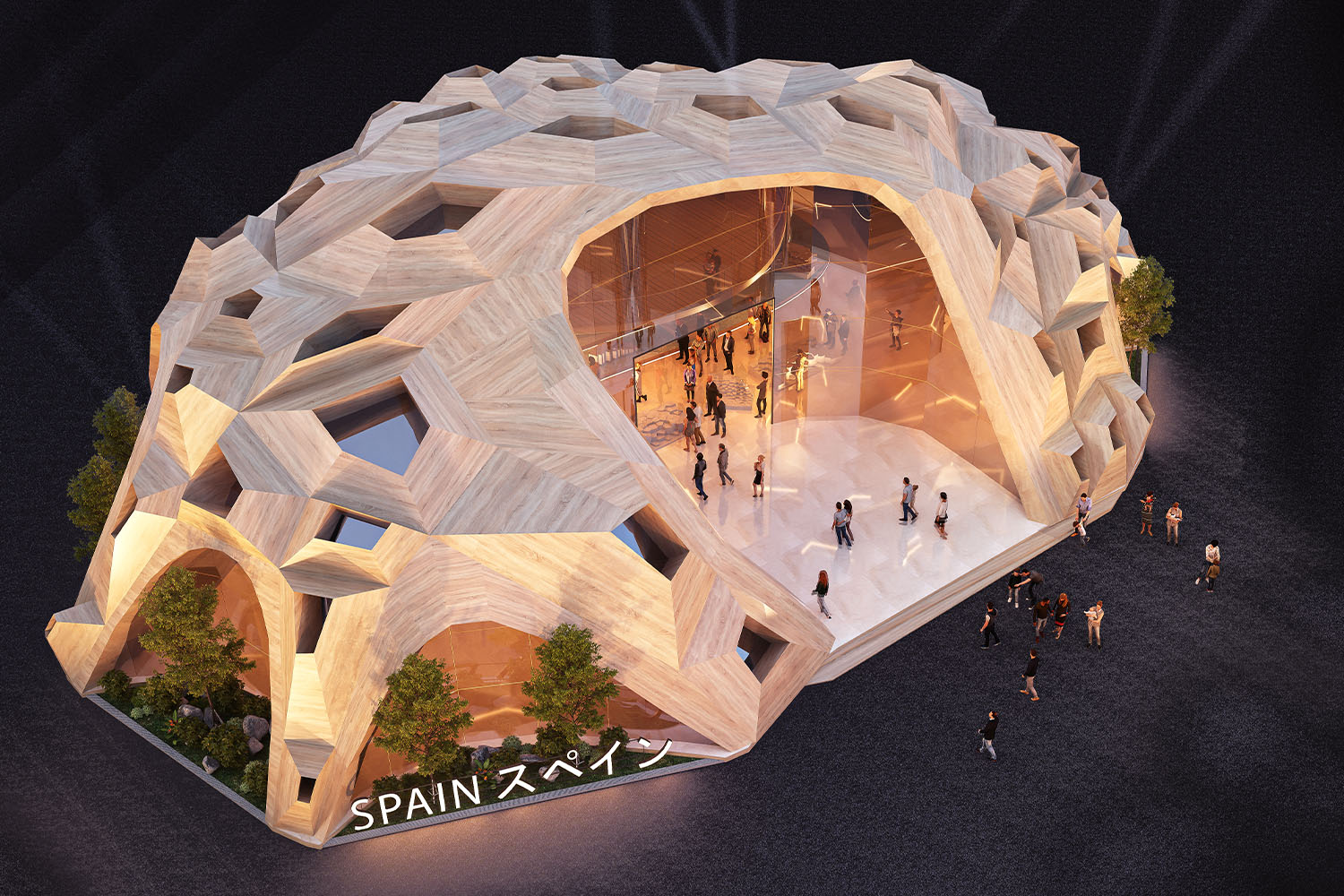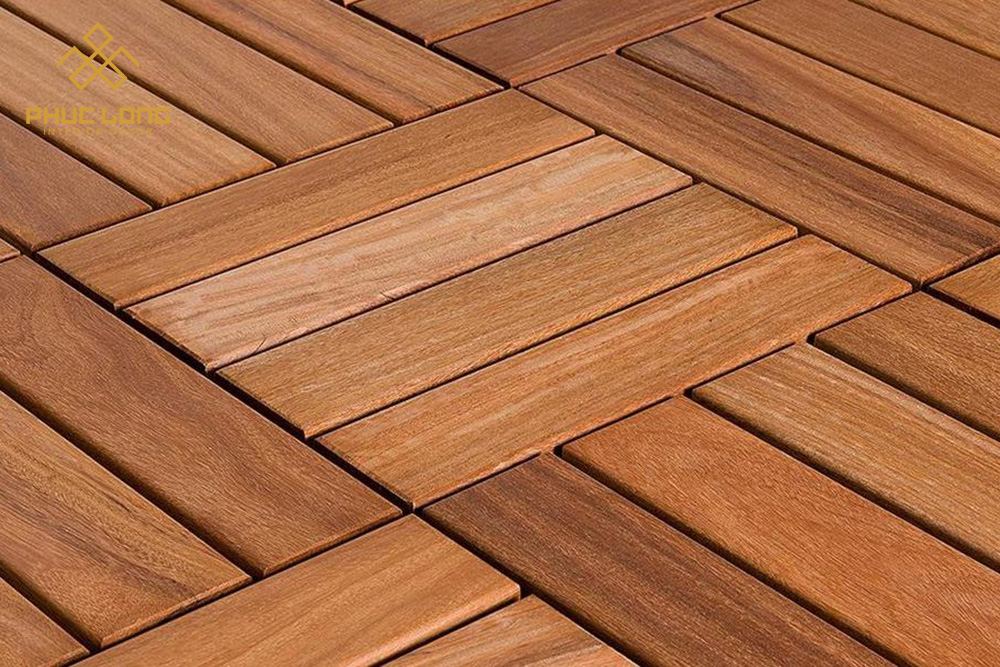In the process of exploring the wood industry, you have probably wondered what is butcher block and why it is searched so much. With this article, VietnamWood will introduce what you need to know about butcher block.
What is butcher block?
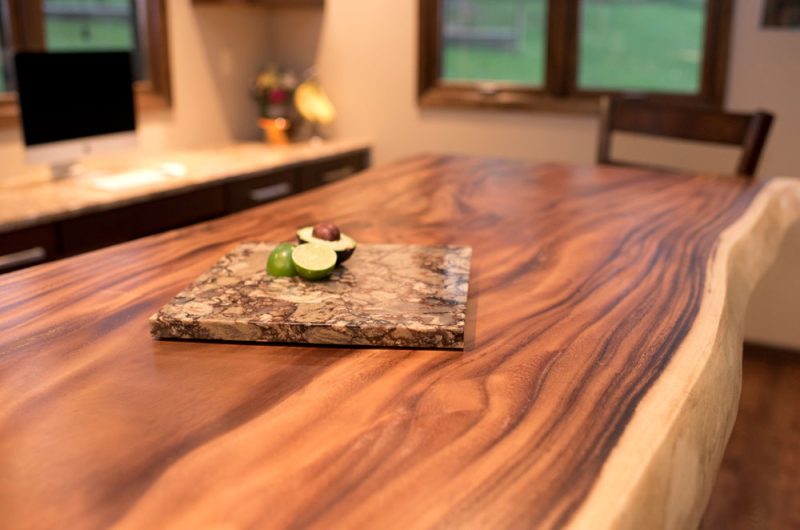
First of all, we will introduce to you butcher block definition.
Among the many types of countertops, what does ‘butcher block’ mean, what material is it made from, and where does it originate from? Before diving into the pros and cons, VietnamWood will clarify these fundamental concepts about butcher blocks.
The term “butcher block” originates from its historical use in butcher shops and meat-processing facilities, where the surface was used for cutting and preparing meat.
However, today, butcher block countertops are widely used in residential kitchens as well. They can be made from various types of wood, with maple and oak being common choices due to their hardness and durability.
A “butcher block” is a type of countertop or surface typically made from wooden strips or blocks that are glued together to create a sturdy, solid surface. It is commonly used in kitchens, particularly for food preparation.
Butcher block countertops are known for their durability and resistance to cutting and chopping, making them well-suited for cutting and slicing various foods. They provide a warm and natural appearance to kitchens and are often favored for their aesthetic appeal and functionality.
Overall, butcher block countertops are a popular choice for those who appreciate the look and feel of wood in their kitchen and want a versatile surface for cutting and food preparation.
Advantages of butcher block
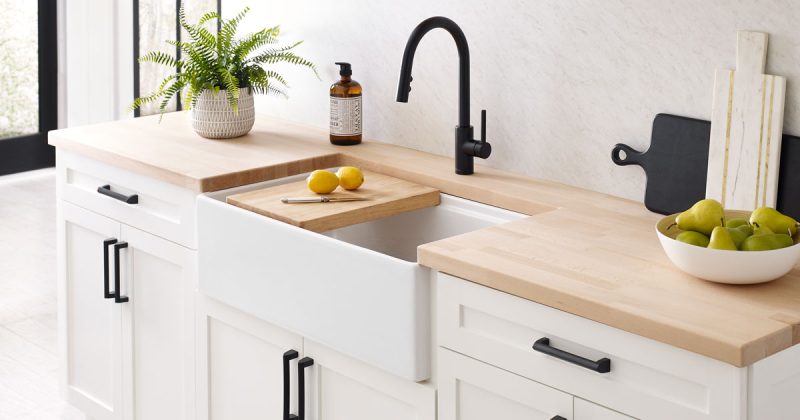
It’s not by chance that many people choose butcher block for DIY woodworking at home. Butcher block possesses numerous advantages that are suitable for both home crafting and professional manufacturing. Some notable characteristics of butcher block include:
1. Durability
Butcher block is known for its high durability, making it resistant to scratches, dents, and general wear and tear.
2. Natural Aesthetics
The warm and natural appearance of butcher block adds a timeless and inviting look to any space.
3. Versatility
Butcher block is versatile and can be used for various applications, including countertops, tables, and desks.
4. Easy Maintenance
With regular sealing and proper care, butcher block is relatively easy to maintain, keeping its appearance intact over time.
5. Repairable
In the event of scratches or minor damage, butcher block can be sanded and refinished to restore its original look.
6. Long Lifespan
When properly cared for, butcher block can have a long lifespan, providing a reliable and enduring surface for years.
With all these advantages, it can be said that butcher block is an extremely ideal choice for woodworking enthusiasts at home, enabling them to create many useful items or furniture for their homes.
Butcher block countertops – the most common application
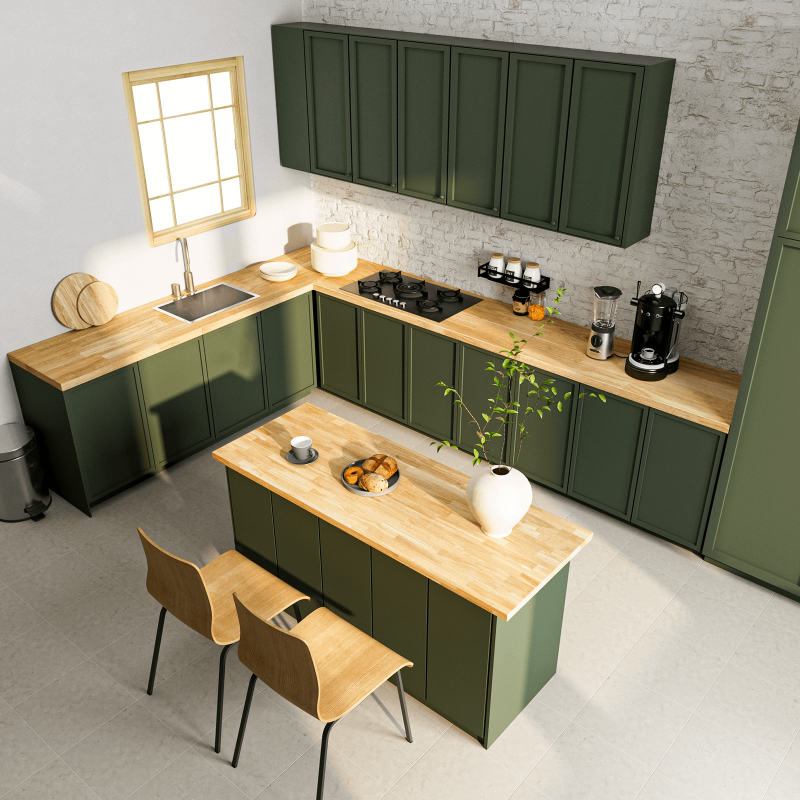
In addition to the general strengths mentioned above, butcher block is particularly suitable for use as countertops. It possesses a robust appearance and durability due to being made from hardwood, providing excellent load-bearing capacity and suitability for kitchen activities. The natural characteristics of wood contribute to a cozy and comfortable kitchen environment, enhancing the overall pleasant feeling in your kitchen.
The types of wood used for butcher block countertops are also quite diverse, often being hardwood varieties, with the most common ones being walnut, oak, rubberwood, and maple. Each type has its own advantages; for instance, oak wood is visually appealing, rubberwood is durable, and maple is hard with distinct wood grain patterns.
In kitchen counter uses, it is crucial to opt for unsealed wood with an oil finish. Sealed countertops are not suitable for food preparation; they are not conducive to food or knife use. Mark Squire of Quality Kitchen Cabinets in San Francisco explains: “Using sealed wood defeats the purpose of butcher block, because it covers up the natural warm surface with plastic.”
A sealed butcher block provides a glossy appearance and can serve effectively as a desk or bar top in a kitchen not used for food preparation. (And if needed for food prep, use it in conjunction with a cutting board.)
How to care for butcher block countertops
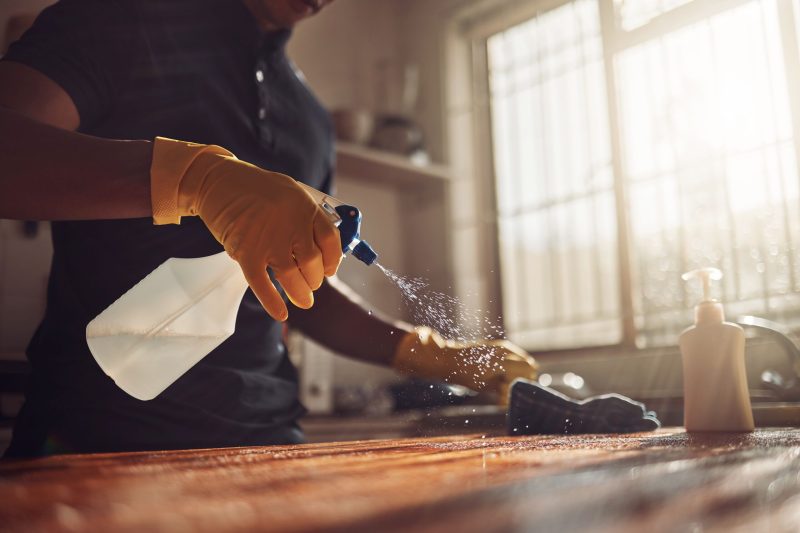
Maintaining butcher block countertops is essential to ensure their longevity and appearance. Here are some general tips on how to care for and maintain butcher block countertops:
Regular Cleaning
- Wipe down the surface regularly with a damp cloth and mild soap.
- Avoid using harsh chemicals or abrasive cleaners that can damage the wood.
Temperature Control
Avoid placing hot pots or pans directly on the butcher block surface. Use trivets or hot pads to protect the wood from heat damage.
Avoid Harsh Chemicals
Stay away from harsh chemicals, bleach, or ammonia-based cleaners, as they can damage the wood and its finish.
Oil Treatments
- Apply food-grade mineral oil or a recommended butcher block oil regularly to keep the wood moisturized.
- The frequency of oiling depends on usage; typically, it’s done every few weeks or as needed.
Deep Clean with Vinegar
- For deeper cleaning, use a dishcloth to apply white vinegar.
- Let the vinegar stand for 15 minutes to work its natural antibacterial magic, then rinse with a clean, wet washcloth or sponge.
- Dry thoroughly.
Use Cutting Boards
- While butcher block is durable, using cutting boards for chopping and cutting will minimize wear and tear.
- This also helps maintain a sanitary surface for food preparation.
By following these guidelines, you can care for butcher block countertops and keep them in excellent condition and enjoy their natural beauty for years to come.
VietnamWood – provides leading butcher block suppliers contacts
VietnamWood has a network of over 1,000 wood manufacturing businesses in Vietnam and 5,000 global businesses in the industry. Therefore, for any of your butcher block buying needs, we can provide assistance. Please contact us for more detailed and specific advice.
Through the article we just shared, we hope that you now have the answer for the question “What is butcher block?”.
Furthermore, common issues related to butcher block are also addressed in our recent article. With its numerous advantages and versatile applications, undoubtedly, butcher block will continue to attract significant demand from both B2B customers and consumers in the coming time.


